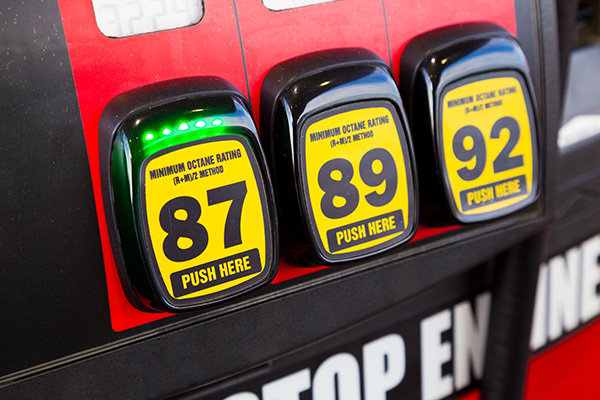
Gas prices can fluctuate, and when they’re high, it’s tempting to save money by filling up with regular gas instead of premium—especially if your car’s manual says “premium recommended” rather than “premium required.” But does using regular gas in a premium-fuel vehicle actually harm the engine, or is it just a myth?
Many drivers assume that premium fuel is just a marketing gimmick, but the truth is that some engines are designed to run on higher-octane fuel for a reason. Knowing what happens when you use regular instead of premium will help you decide whether it’s worth the risk.
What’s the Difference Between Regular and Premium Gas
The main difference between regular and premium gasoline is the octane rating. Regular gas typically has an 87 octane rating, while premium gas ranges from 91 to 93 octane. The octane rating measures how resistant the fuel is to pre-ignition, also known as engine knocking.
Engines with higher compression ratios or turbochargers rely on premium fuel to prevent knocking, which can cause damage over time. Using the wrong fuel in these engines may lead to reduced performance, lower fuel efficiency, and potential long-term issues.
Does Using Regular Gas Damage a Premium-Only Engine
If your car requires premium fuel (not just recommends it), using regular gas can cause problems. High-performance engines are built to operate at higher temperatures and pressures, and lower-octane fuel may ignite too soon, creating uncontrolled combustion. Over time, this can damage the pistons, spark plugs, and cylinder walls, leading to costly repairs.
Modern cars have knock sensors that can adjust timing to compensate for lower-octane fuel, but this comes at the cost of reduced power and efficiency. If you accidentally use regular gas once, your car will likely be fine—but making it a habit can lead to long-term engine wear and decreased performance.
What Happens If Your Car Only Recommends Premium
If your vehicle recommends premium but doesn’t require it, using regular gas is less risky. The engine may still adjust timing to prevent knocking, but you might notice slightly lower horsepower, decreased fuel economy, or rougher acceleration.
In many cases, switching between premium and regular gas occasionally won’t cause serious damage, but if you want to maintain peak performance, it’s best to stick with premium.
Can You Mix Regular and Premium Gas
If you accidentally fill up with regular instead of premium, or if you want to save money by blending the two, you might wonder if mixing them is a good idea. In most cases, mixing fuels won’t harm your engine, but it does lower the overall octane level in your tank.
For example, if your car requires 91 octane and you mix half a tank of 93 with half a tank of 87, you’ll end up with an octane rating somewhere around 89–90. While this may not immediately cause engine damage, it’s still not ideal for long-term use in a high-performance or turbocharged vehicle.
How to Know If Your Car Is Affected
If you’ve been using regular gas in a premium-required vehicle and notice any of the following symptoms, it may be time to switch back to premium:
- Knocking or pinging sounds from the engine
- Sluggish acceleration or loss of power
- Lower fuel efficiency than usual
- Rough idling or hesitation when pressing the gas
If these symptoms persist, it’s best to have your engine checked to ensure no long-term damage has occurred.
Protect your engine and maximize performance with expert care from Ocala Auto Repair. Stop by for a fuel system check-up and keep your car running like new!